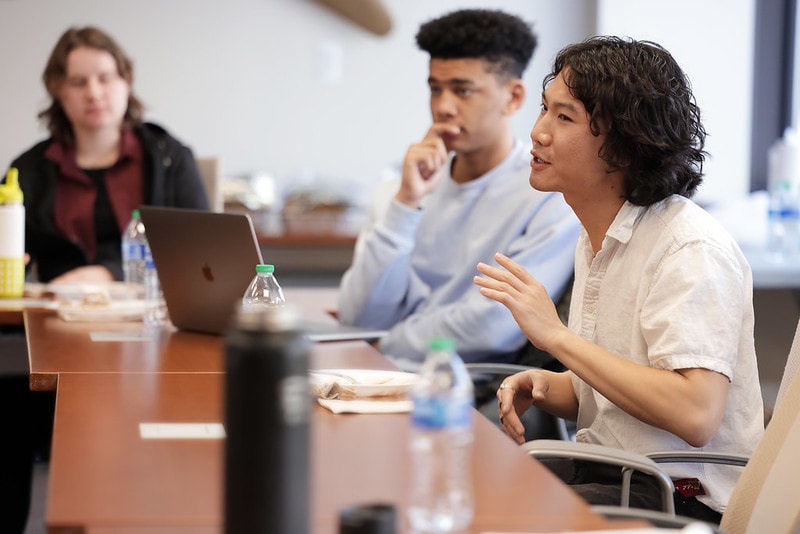
M.A.R.S. Dialogues explore the ethics underpinning aerospace today and a spacefaring future
Students, faculty and staff discuss aerospace culture and challenge narratives that are often assumed to be true.

Students, faculty and staff discuss aerospace culture and challenge narratives that are often assumed to be true.
How much agency do engineers have in the projects they choose to support with their talents, and in the way those projects go on to be used? How can engineers use what leverage they have to build a better future?
These are questions that Aaron Johnson, a professor of aerospace engineering and a core faculty member in the Engineering Education Research Program at the University of Michigan, is raising in a series of lunch-hour discussions called “M.A.R.S. Dialogues”, where the “M.A.R.S.” means Macroethics—Aerospace’s Responsibility to Society.
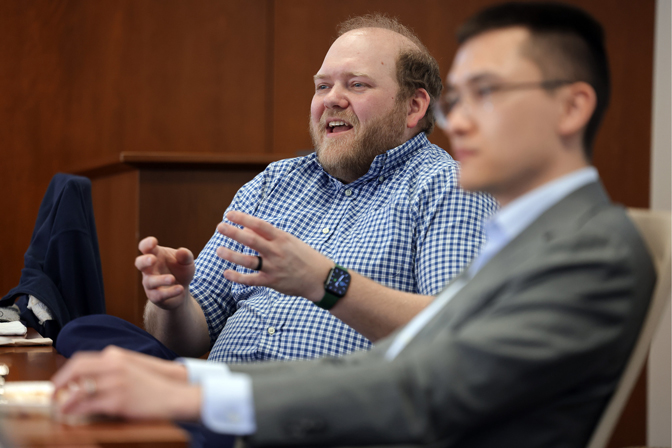
Often when we think of ethics, it’s the internal compass of a person or an organization. Do they behave with integrity? Do they take care not to harm others? Macroethics scales this concept up beyond organizations, to harms that are committed collectively—and the collective good that we can only pursue by working in concert with one another. Macroethical topics include poverty, sustainability and social justice.
Intrigued by the topics and readings, and rewarded for the effort with lunch, students, staff and faculty gather around a conference table in the Francois-Xavier Bagnoud Building or attend via Zoom. Here, they share thoughts and raise questions, exploring moral and ethical considerations in topics like space settlement, climate change, and diversity representation in aerospace.
Johnson described his own evolution as he recognized the culture in aerospace engineering and noticed that, like all cultures, it includes assumptions that may or may not be true.
“It took me quite a while—like 10-15 years—of maturing and getting into engineering education research to understand that there was a particular culture in aerospace. And while I had fit in as an undergrad, a lot of other people didn’t fit in as well as me for various reasons. One of my goals with M.A.R.S., and the macroethics lessons in my aerospace courses, is to give people a safe place to discuss these issues and to bring forth viewpoints that aren’t often heard,” said Johnson.
A few assumptions that they are interrogating include: Technology development is always beneficial. Military technology development is necessary. Humans should not hesitate to become an interplanetary species. The advantages of flight outweigh the harm it does to the climate. Aerospace already has the best and brightest talent.
“I think the nature of the M.A.R.S. Dialogues inherently draws participants who want to push against these existing cultural narratives. It is intended to serve as a space where they can learn and discuss their thoughts, maybe because they haven’t felt like their voices have been heard elsewhere,” said Johnson.
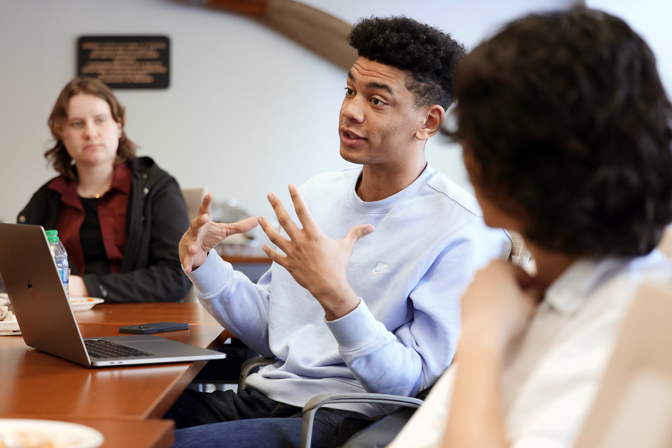
When discussing the military-industrial complex—which is a prominent employer and funder of aerospace students—participants discussed how aerospace engineering culture typically doesn’t dwell on all of the impacts that follow the deployment of some technologies. One PhD student talked about how easy and even necessary it is for engineers to zero in on their piece of equipment and make sure that it functions the best that it can, without needing to worry about what the rest of the device does.
Likewise, in the climate change session, assistant professor of aerospace engineering Gökçin Çınar discussed the tension between the cultural and economic benefits of air travel versus the drawbacks in terms of the environment and equitable access.
“There is no doubt that aviation plays a critical role in connecting people, cultures, and businesses across the globe, contributing to the growth of the global economy. The complex challenge is working together across disciplines to find innovative solutions that balance environmental, economic and societal considerations,” she said.
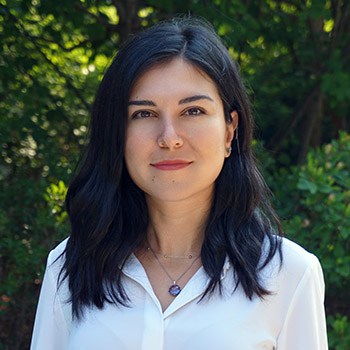
Looking further into the future, to space mining and settlement, several students shared the concern that we might repeat the mistakes we made on Earth, depleting resources and replicating the existing economic and technological inequalities of our home planet. For example, prioritizing the exploitation of mining resources on the moon or on other celestial bodies without fully understanding the consequences for the space environment could be a costly mistake.
Unlike mathematical problems that have a single correct answer, participants in the M.A.R.S. Dialogues acknowledged the complexity and nuance in these large-scale societal issues.
An undergraduate student reflected on this during the climate change session, saying: “The focus is really on exploring these complex issues together and using this communal dialogue to challenge our pre-existing notions—which reflects the reality that many of the most critical ethical challenges in aerospace are not easily answerable and require the sort of deliberate, intentional conversations taking place around sustainability.”
In addition to discussing big and complex issues in space exploration, the M.A.R.S. Dialogues also bring the conversations back to how to live their values as engineers, students and educators.
“To be socially just is to ensure that we are building collective power, that we consider how we design and distribute resources, that our opportunities and privileges are distributed with equity,” Shani Campbell, the aerospace engineering diversity, equity, inclusion and outreach coordinator, who works with Johnson on the M.A.R.S. Dialogues series.
“Social justice in aerospace does require operating from a place of sincere self-reflection, including thinking about how folks can be the best engineers without risking or compromising their values—nor the wellness of living beings. We want to build the practice of thinking critically about not just technological systems, but also social systems that perpetuate inequity and discrimination while privileging economic gain, all at the expense of minoritized communities,” said Campbell.
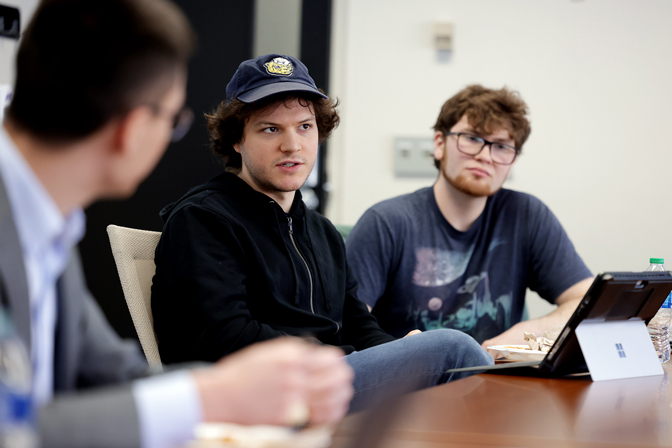
As engineering education places a stronger emphasis on the ethics of how technology functions in society, reflections like these will become a natural part of conversations in technology development.
“These issues are pervasive and important for us to discuss in developing the next generation of aerospace engineers. Here at Michigan we already provide students with an outstanding technical education, but if we truly want them to have a positive impact on the world we also need to give them opportunities to think about the societal impacts of their future work as engineers,” said Johnson.
Additional reporting by Sheila Waterhouse.